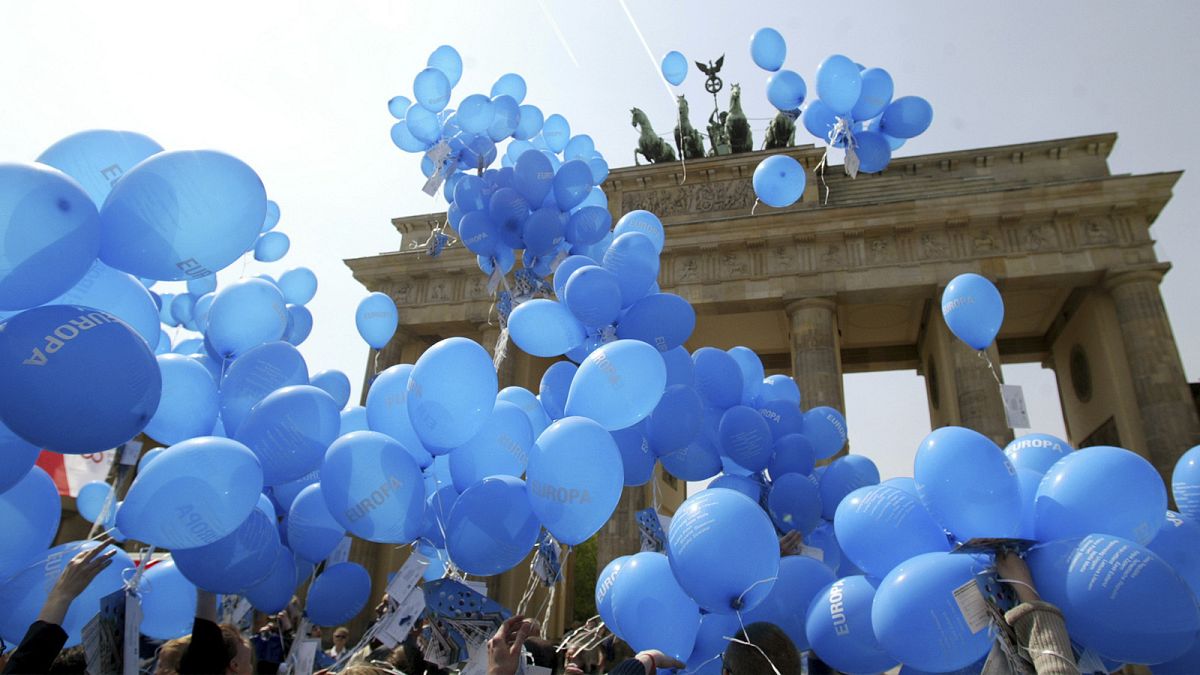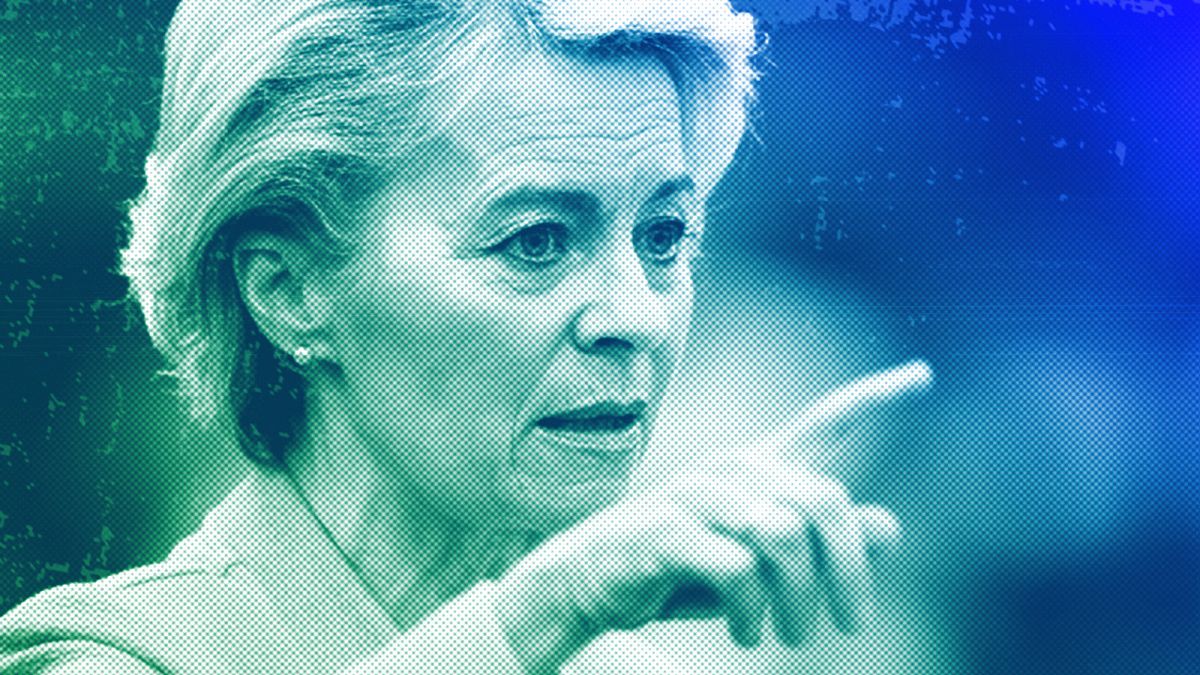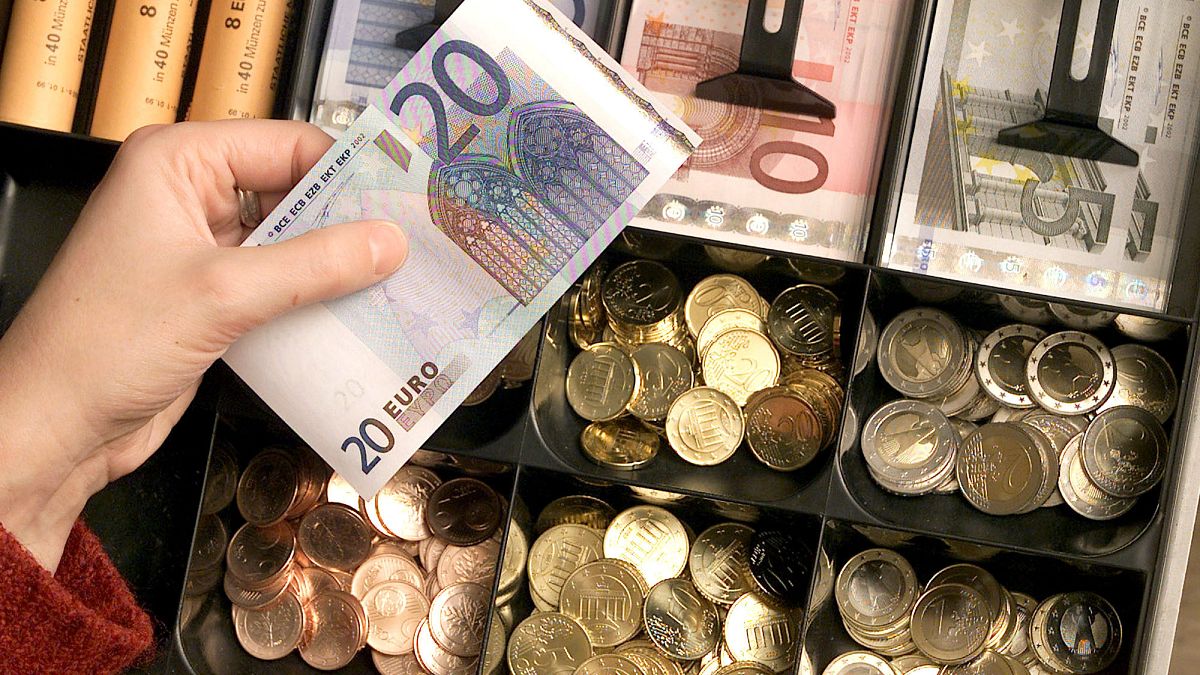World
Here are the 5 elections set to shape Europe in 2024
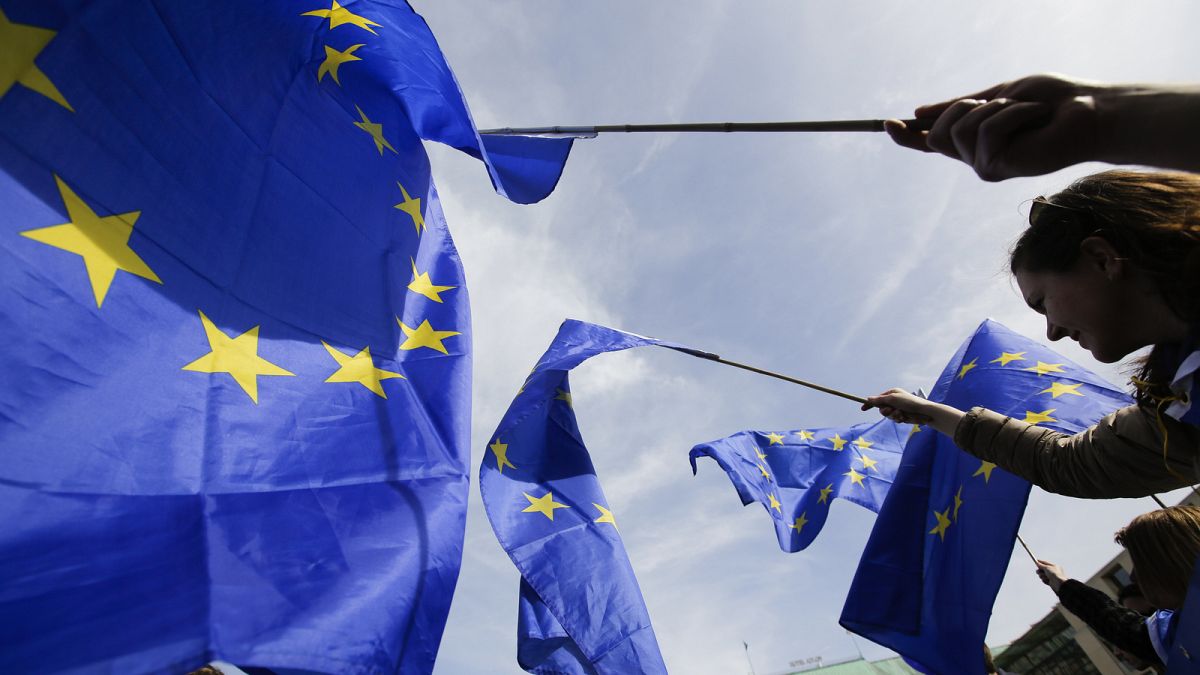
An estimated two billion people in 50 countries worldwide could head to the polls in 2024, more than in any other year in history.
In June, the world’s biggest cross-border election will take place when more than 400 million people are expected to vote in the European elections.
But with high-stakes votes planned in populous nations such as the US, India and Indonesia, autocratic states including Belarus, Iran and Russia, and strategic allies Taiwan and the United Kingdom, elections within and beyond Europe’s borders have the potential to deeply affect the continent.
Potential government changes could decisively tip the geopolitical balance, affecting Western support to Ukraine, the conflict in the Middle East, trading relationships and the interconnected global economy.
The elections will also test the resilience of global democracies amid fears of increased democratic backsliding and hard-line authoritarian rule.
Euronews breaks down the 2024 elections set to shape Europe.
1. United States presidential election – 5 November
The spectre of Republican frontrunner Donald Trump’s return to the White House makes 2024 a potentially explosive year in global politics, and the stakes are high for Europe.
But Trump’s bid for president could be over before it starts. Colorado’s Supreme Court has ruled he cannot run in the state because of his actions ahead of the January 2021 Capitol Hill attack.
His comfortable lead over Republican rivals, however, means he could still win without standing in Colorado – but the ruling sets a strong precedent for similar lawsuits that could prohibit him from competing in other states.
A Republican takeover – whether Trumpian or not – could disrupt the West’s tightly aligned policy on Ukraine, as some wings of the party call for restricting military and financial aid to Kyiv.
It could also spell a return to trade disputes. The previous Republican administration under Trump slapped sweeping tariffs on European allies in an attempt to protect American producers. Both sides have agreed to a temporary truce, but Trump has vowed to introduce a 10% tariff on all foreign imports if he’s elected.
An administration change could also impact the ongoing talks to allow the EU to export critical minerals used to manufacture electric batteries to the US without being slapped with tariffs under the Inflation Reduction Act.
2. European elections – 6-9 June
In June, eligible voters in the EU’s 27 member countries will choose who represents them in the European Parliament, the bloc’s only democratically-elected institution.
A giant in terms of voter numbers, the election has suffered from feeble turnout and disinterest among voters who feel the EU is too far removed from their daily lives.
Projections of a surge in support for euroskeptic and far-right parties – buoyed by recent electoral successes in the Netherlands, Italy, Finland, and Sweden – are sowing doubts over the EU’s future path.
The latest polls put the far-right Identity and Democracy group at a record high of 87 seats in the 720-member hemicyle, meaning it could compete with the Liberals to become the parliament’s third-biggest party. This could put the far-right in a kingmaker role between the two main conservative and socialist groups who, although ideologically opposed, cooperate to ensure the functioning of the EU institutions in a ‘grand coalition.’
An economic downturn in major EU economies, brewing discontent in rural areas, climate change and migration are all set to be defining issues for the campaign.
The election will also decide who leads the next European Commission, with current President Ursula von der Leyen expected to run again, and trigger a major re-shuffle of the top EU jobs.
3. Portuguese legislative election – 10 March
A snap election was called by Portugal’s president in November, after socialist Prime Minister António Costa was forced to step down — but has remained in post in a caretaker capacity — amid a sprawling corruption probe.
The Socialist Party (PS) will hope its new leader Pedro Nuno Santos can cling to government in the Iberian country, which has been a bastion for the European left wing in recent years.
The polls suggest a tight race, with Nuno Santos’ Socialist Party and its conservative opposition, the Social Democratic Party, currently tied in the polls at around 27% of the vote.
But the left-wing stronghold could be the latest European country to see a far-right surge. Chega, a hard-right challenger party aiming to upset the traditional two-party system, is hot on the two mainstream parties’ heels at 17%.
Chega has been criticised for ‘poisoning’ the national debate with racist, anti-LGBTQ+, anti-immigrant, and anti-Roma rhetoric.
4. Belgian federal election – 9 June
Belgium will hold a double election in early June, with the European and federal elections taking place on the same day. The country of 11.6 million is known for its fractured politics and complex power-sharing arrangements, with no less than seven parties in its current coalition government.
The polls paint a highly familiar picture, with far-right Flemish independentists Vlaams Belang leading in Flanders, the Socialist Party ahead in Wallonia, while the liberals are tipped to win in Brussels.
With the current seven-party coalition on track to garner enough support to govern again, Prime Minister Alexander de Croo will want to use Belgium’s six-month presidency of the Council of the EU, which kicks off in January, to score political points at home.
But De Croo’s own Flemish conservative liberal party polls at historic lows on its home turf of Flanders. His decisive stance on the Gaza conflict and a government crisis following the recent terrorist attack in Brussels has led to a deflation in his support.
5. Austrian legislative election – expected by autumn
Austria’s election could prove to be one of the most critical as Europe struggles to withhold a far-right surge.
The far-right Freedom Party of Austria (FPÖ) is currently polling at an impressive 30% of the vote. Its support has climbed steadily after its fall from grace following the 2019 Ibiza scandal, when then-Vice Chancellor and FPÖ leader Heinz-Christian Strache was filmed eliciting political favours from Russian business contacts.
The party’s anti-lockdown policies during the Covid-19 pandemic, its criticism of the economic repercussions of EU sanctions on Russia and its populist policies have seen it slowly regain the faith of right-wing voters. It has also capitalised on infighting between centrist parties to consolidate its support.
If momentum continues, it is possible that the next Austrian chancellor could come from FPÖ ranks.
Other elections to look out for
Finland will elect its new President in January – David MacDougall has this preview.
Parliamentary elections will be held in Lithuania on 12 May, and Croatia by 22 September.
Ukraine’s presidential election is due to take place in the spring, but the law prohibits ballots under martial law. President Volodymyr Zelenskyy has previously said holding wartime elections would be “utterly irresponsible.”
Russians will elect their next president on 17 March. But with independent media stifled and critics imprisoned or in exile, the path is clear for President Vladimir Putin to secure his next term.
Other bogus elections are scheduled in Iran on 1 March, and Belarus on 25 February.
General elections will take place in Indonesia on 14 February and in India between April and May. The Indonesian vote is set to be the world’s largest-ever single-day election with more than 200 million eligible voters.
Taiwan will head to the polls in presidential elections on 13 January.
The United Kingdom will hold general elections before the end of 2024, Prime Minister Rishi Sunak confirmed earlier this week.

World
New Russia sanctions target weapons development and countries assisting in sanctions evasion
WASHINGTON (AP) — The U.S. on Wednesday imposed new sanctions on hundreds of firms and people tied to Russia’s weapons development program, more than a dozen Chinese firms accused of helping Russia find workarounds to sanctions and individuals tied to the death of Russian dissident Alexey Navalny.
The sanctions imposed by the Treasury and State departments target Russia’s military-industrial base, chemical weapons programs and people and firms in third countries that help Russia acquire weapons components as its invasion of Ukraine has entered its third year.
Treasury Secretary Janet Yellen said the action “will further disrupt and degrade Russia’s war efforts by going after its military industrial base and the evasion networks that help supply it.”
The sanctions come as the Senate gave final approval to legislation barring imports of Russian uranium, boosting U.S. efforts to disrupt Russia’s war in Ukraine. President Joe Biden is expected to sign the bill into law.
About 12% of the uranium used to produce electricity at U.S. nuclear power plants is imported from Russia, according to the U.S. Energy Information Administration.
A spokesperson for the National Security Council said Wednesday that Biden, a Democrat, shares lawmakers’ concerns about U.S. reliance on Russia for low-enriched uranium to support its domestic nuclear fleet.
Included in Wednesday’s sanctions announcement are importers of cotton cellulose and nitrocellulose — used to produce gunpowder, rocket propellants and other explosives. Also included are Russian government entities and people tied to Russia’s chemical and biological weapons programs and firms related to Russia’s natural gas construction projects.
Russian President Vladimir Putin has repeatedly railed against several rounds of U.S. and Western sanctions, claiming last year that they are “illegitimate sanctions” on his country.
A group of 16 targets in China and Hong Kong, most of which are related to Russian procurement workarounds, are also included in the latest sanctions announcement.
Firms in countries including China, Azerbaijan, Belgium, Slovakia, Turkey and the United Arab Emirates are accused of helping Russia acquire technology and equipment from abroad. The penalties aim to block them from using the U.S. financial system and bar American citizens from dealing with them.
The sanctions come after Biden last week said he would immediately rush badly needed weaponry to Ukraine as he signed into law a $95 billion war aid measure that also included assistance for Israel, Taiwan and other global hot spots.
Yellen said with the sanctions and supplemental funding combined, “our support for Ukraine and our relentless targeting of Russia’s military capacity is giving Ukraine a critical leg-up on the battlefield.”
World
Indonesia’s Ruang volcano spits more hot ash after eruption forces schools and airports to close
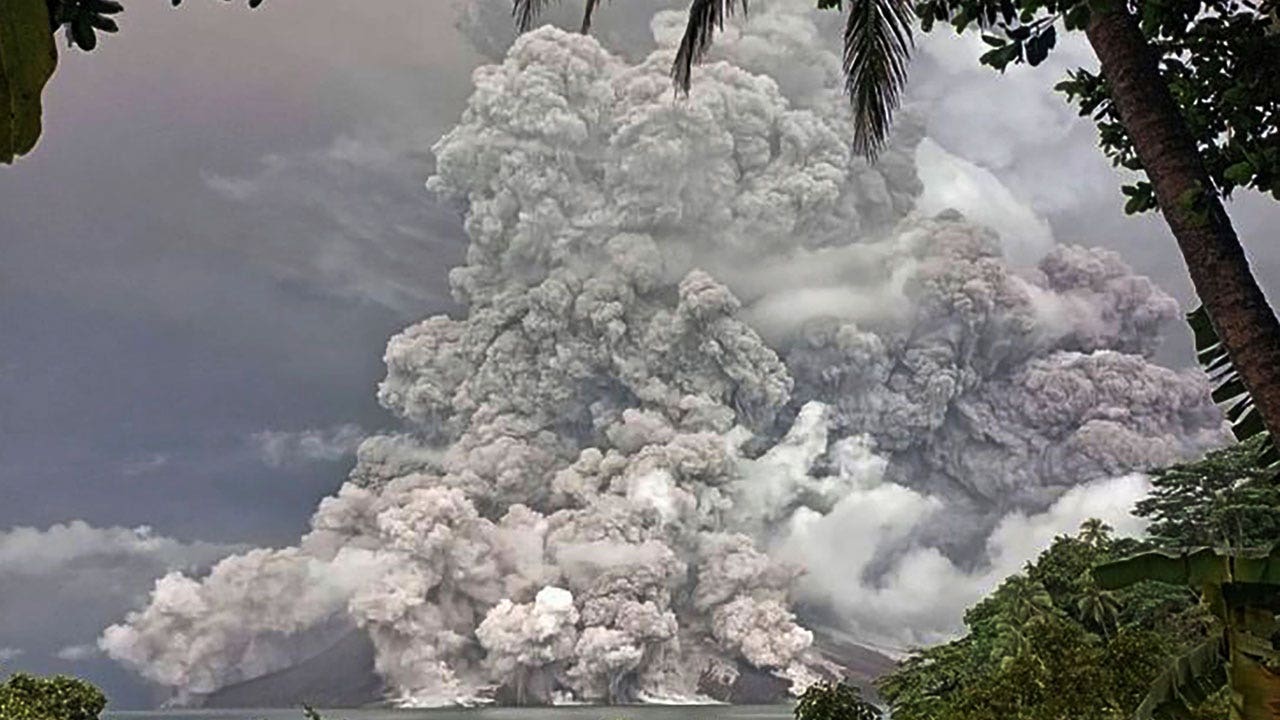
Indonesia’s Mount Ruang volcano spewed more hot clouds on Wednesday after an eruption the previous day forced the closure of schools and airports, pelted villages with volcanic debris and prompted hundreds of people to flee.
Seven airports, including Sam Ratulangi international airport in Manado, the capital of North Sulawesi province, remained closed after Tuesday’s eruption, the second in two weeks. Schools were shut to protect children from volcanic ash.
The volcano is on tiny Ruang Island, part of the Sitaro islands chain.
VIDEO SHOWS LIGHTNING SHOOTING FROM TOXIC ASH CLOUD DURING POWERFUL VOLCANIC ERUPTION IN INDONESIA
The Indonesian geological agency urged people to stay at least 4 miles from the volcano’s crater. It warned people on nearby Tagulandang Island, the closest to the volcano, of possible super-heated volcanic clouds from a further eruption and a tsunami if the mountain’s volcanic dome collapses into the sea.
Mount Ruang releases volcanic materials during its eruption on April 30, 2024, on Sulawesi Island, Indonesia. The volcano erupted on April 30 for a second time in two weeks, spewing ash more than a mile into the sky, forcing an airport to close and peppering nearby villages with debris. (Vulcanology and Geological Disaster Mitigation Center via AP Photo)
Video released by the National Search and Rescue Agency showed about a hundred villagers from Tagulandang Island being evacuated on a navy ship. Hundreds of others were waiting at a local port to be evacuated.
Agency spokesperson Abdul Muhari said 11,000 to 12,000 people living within a 4-mile danger zone would be taken to government shelters.
Tuesday’s eruption darkened the sky and peppered several villages with ash, grit and rocks. No casualties were reported.
After Mount Ruang’s April 17 eruption, authorities warned that a subsequent eruption might collapse part of the volcano into the sea.
Ruang is among about 130 active volcanoes in Indonesia. The archipelagic nation is prone to volcanic eruptions and earthquakes because of its location on the Pacific “Ring of Fire,” a series of fault lines stretching from the western coast of the Americas through Japan and Southeast Asia.
World
Turkish police arrest hundreds at Istanbul May Day protests

Authorities deployed more than 40,000 police officers across the city after banning protests in Taksim Square.
Police in Istanbul have used tear gas and rubber bullets to disperse protesters who tried to break through a barricade to reach the city’s Taksim Square in defiance of a ban on May Day rallies.
Turkish Interior Minister Ali Yerlikaya said 210 people were arrested on Wednesday.
More than 40,000 police were deployed across the city, blocking even small side streets with metal barriers after President Recep Tayyip Erdogan said on the eve of May Day that the annual protests would not be allowed to take place in the square.
Tall metal barriers were put up around the square – a traditional focal point of protests in Istanbul, where authorities have banned rallies since 2013, when it was the focus of demonstrations against Erdogan’s government.
On X, Yerlik said that “210 people were detained in Istanbul after failure to heed our warnings and attempting to walk to the Taksim Square and attack our police officers on May 1 Labour and Solidarity Day.”
Police clashed with demonstrators near city hall in the Sarachane district, firing tear gas and rubber bullets to stop protesters from breaching barricades, the AFP news agency reported.
“We have demonstrated our will to celebrate May Day at Taksim Square. We have legal grounds,” Arzu Cerkezoglu, secretary general of the Confederation of Revolutionary Trade Unions of Turkey (DISK), told AFP.
“Taksim is an important symbol for us. Taksim means May Day, Taksim means labour,” she said.
In 2023, Turkey’s top constitutional court ruled that the closure of Taksim Square for protests was a violation of citizens’ rights. The square was a rallying ground for May Day celebrations until 1977, when at least 34 people were killed during demonstrations. Authorities opened it up again in 2010, but it was shut again after the 2013 protests.
City locked down
Main roads across Istanbul were closed to traffic while public transport including ferries and subway trains was halted because of the security clampdown. Landmarks such as the Topkapi Palace were cordoned off.
On Monday, Yerlikaya said Taksim would be out of bounds for rallies to stop “terrorist organisations” from using it for “propaganda”.
Turkey’s main opposition Republican People’s Party (CHP) and unions had pressed the government to open the square for labour rallies, but Erdogan warned on Tuesday against any provocation.
CHP leader Ozgur Ozel, accompanied by Istanbul’s Mayor Ekrem Imamoglu and labour unions, gathered in the Sarachane neighbourhood.
“We will keep on fighting until Taksim is free,” Ozel said. “Taksim belongs to the workers.”
Addressing the police, Ozel declared: “These workers are not your enemies. Our only desire is for the day to be celebrated as a festival. We do not want conflict.”
-

 Education1 week ago
Education1 week agoVideo: Dozens of Yale Students Arrested as Campus Protests Spread
-

 World6 days ago
World6 days agoHaiti Prime Minister Ariel Henry resigns, transitional council takes power
-

 News7 days ago
News7 days agoLarry Webb’s deathbed confession solves 2000 cold case murder of Susan and Natasha Carter, 10, whose remains were found hours after he died
-

 Politics1 week ago
Politics1 week agoFetterman hammers 'a–hole' anti-Israel protesters, slams own party for response to Iranian attack: 'Crazy'
-

 World1 week ago
World1 week agoPeriod poverty still a problem within the EU despite tax breaks
-

 World7 days ago
World7 days agoUS secretly sent long-range ATACMS weapons to Ukraine
-

 News6 days ago
News6 days agoFirst cargo ship passes through new channel since Baltimore bridge collapse
-

 World1 week ago
World1 week agoTurkey’s Erdogan meets Iraq PM for talks on water, security and trade
